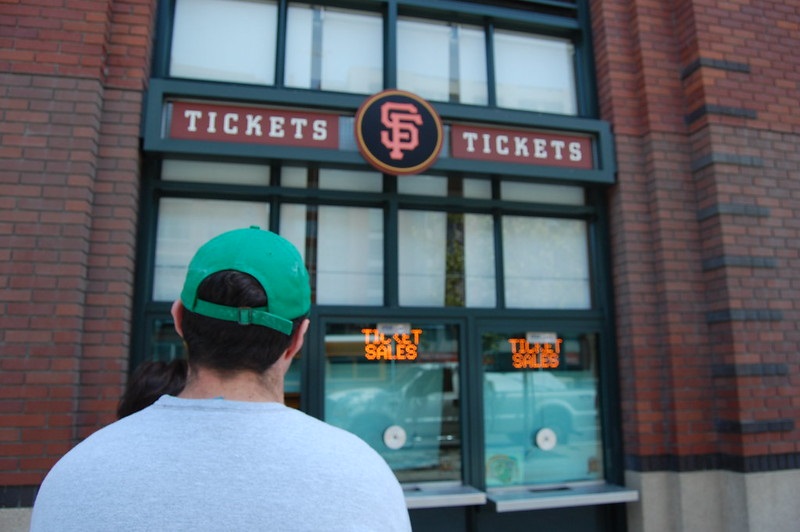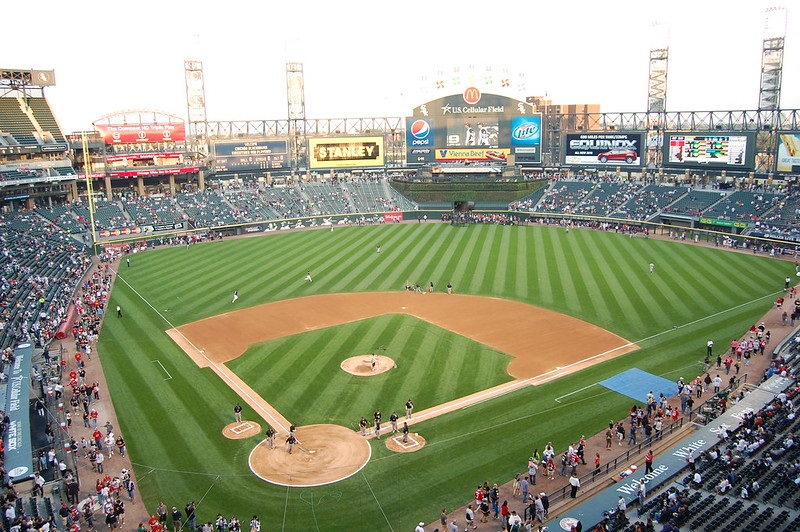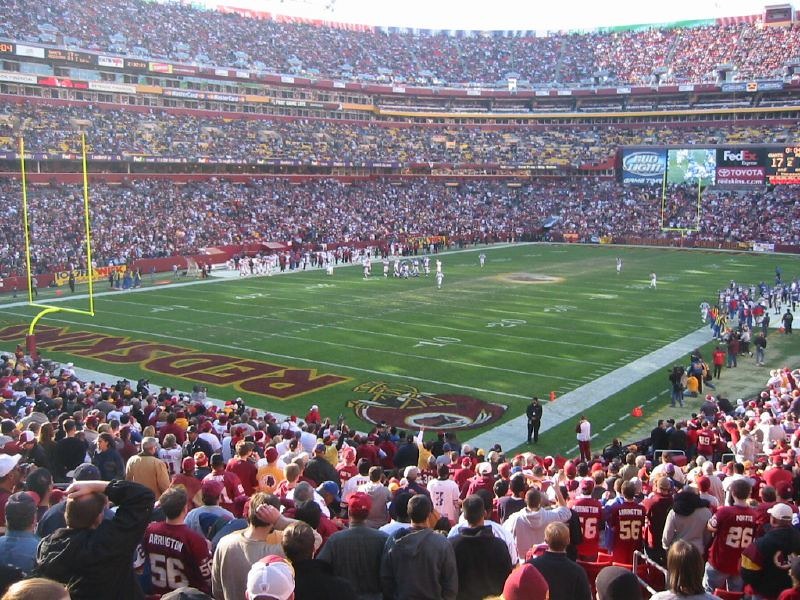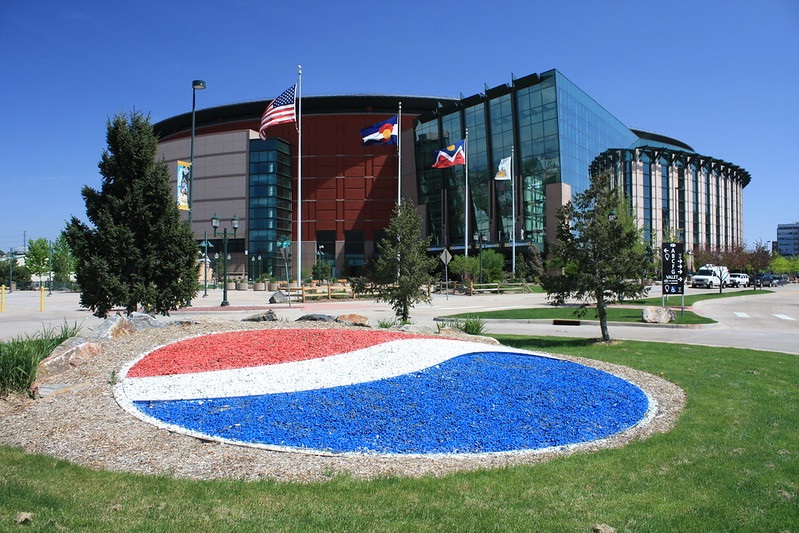
Image Credit: Antony Mayfield (CC BY 2.0)
So when is the best time to buy your tickets to sporting events? The day they go on sale? Weeks in advance? The day of the game? After the game has started? First, let’s consider what some of the largest ticket retailers are saying.
What StubHub Says
- Last minute ticket purchases are becoming more popular with smart phone usage and print at home options.
- On average, fans will pay 30% more for their tickets when purchased a month in advance compared to purchasing tickets the day of the game.
- It’s best to purchase tickets ahead of time if making travel arrangements specifically for the game to avoid uncertainty.
What SeatGeek Says
- Purchasing your tickets one week in advance will save you 18%-20% compared to purchasing a month in advance.
- Tickets to any event have an expiration date. Unsold inventory is sometimes sold for less than face value depending on how low the demand is.
- Team performance has a greater significance towards ticket prices than an individual player’s performance.
- If a team or musician rarely visits a certain city, this will also effect ticket prices. (Inter-league play in Major League Baseball, band reunions or an artist that rarely tours).
Both companies have made some excellent points. However, the best time to purchase a ticket to a game can vary greatly depending on which sport you’ll be seeing live. Here are a few things to consider.
MLB

Image Credit: Bari D (CC BY-ND 2.0)
- Weekend baseball games are often more than 20% more expensive to attend than weeknight games. This is due to demand since many people are off from work on the weekends and have free time to see a game.
- Baseball is the only sport where teams will face off against the same team for multiple games consecutively. The first game of the home stand is always the most expensive to attend. You’re better off waiting until the third game. There are even four game series throughout the season.
- Tuesday and Wednesday baseball games are statistically the cheapest games to attend for Major League Baseball.
- Day games are much cheaper to attend than evening games since more fans are at work during daytime hours, thus, less demand.
- Many Major League Baseball organizations are now switching to a dynamic pricing model, the same way hotels operate. When popular teams like the New York Yankees and Boston Red Sox come to town, the ticket price goes up. When teams like the Cleveland Indians and Miami Marlins are in town, the ticket prices drop.
NFL

Image Credit: Kevin Coles (CC BY 2.0)
- Some teams will attempt to avoid TV blackouts by getting rid of unsold tickets in a hurry. If you are planning on seeing a team like the Jacksonville Jaguars that are often subject to blackouts, you should be able to find cheap NFL tickets as the blackout deadline approaches.
- The weather often plays a role in ticket prices if you’re purchasing last minute. Football is played during the fall and winter months in cold conditions. Some fans just aren’t motivated enough to sit out in the cold to see a game. So depending on the forecast, you may be able to find tickets for cheaper than expected.
- Tickets purchased at kickoff outside of the stadium can often net fans a savings of 15% - 20%. Yes, the same even applies to the Super Bowl.
- Tickets for Monday Night and Thursday Night Football games are often cheaper than Sunday games. This can be attributed to many fans working a regular work week, thus, less demand.
- Divisional games have high demand but can be hit or miss if the rivalry is lop-sided. Expect to pay more for your NFL tickets when the Dallas Cowboys, Green Bay Packers and Pittsburgh Steelers come to town. Fans of those teams are all around the country and also travel well so there will be a higher demand.
NBA and NHL

Image Credit: David Herrera (CC BY 2.0)
- Many NHL and NBA teams play under the same roof and both leagues play the same number of games. Many of the same ticket strategies will apply to fans of both leagues.
- Weeknight hockey and basketball games will also be much cheaper than weekend games.
- Consider the venue size when purchasing tickets to either league. For example, the Winnipeg Jets play in the NHL’s smallest arena, thus, virtually every seat is owned by a season ticket holder. This creates a very small supply of Jets tickets in a country where the demand to see a hockey game is very high. Tickets will often be cheaper in large venues like Little Caesars Arena (Pistons) and Wells Fargo Center (76ers/Flyers).
- Consider seeing your favorite team in another city. The Chicago Blackhawks have led the NHL in attendance and sold out every home game for the last six seasons. It is often cheaper to travel to see the Blackhawks in Detroit or St. Louis. If you want to see Lebron James play, consider seeing him in Milwaukee or Detroit.
- Rivalry tickets are priced sky high but gradually come down as game time approaches. Don’t bite when the schedule comes out and Lebron is returning to Miami or the Boston Bruins are playing the Montreal Canadiens. Waiting until within three days of the game will always be your best bet at saving money on tickets to rivalry games.
- NHL tickets are often cheaper in cities with warmer weather such as Arizona, Florida, Tampa and Carolina. It’s hard to push demand and get fans excited for a cold weather sport when it’s 85 degrees outside.
As with any product, tickets are based on supply and demand. It isn’t science. Just keep in mind that you, the fans, control the ticket market. Companies like Ticketmaster, Stubhub and SeatGeek are only an outlet for tickets. Don’t like paying $70 to see a lousy team? Stop going and watch the game at home.
Related Articles
- Tips on How to Purchase your Tickets on Ticketmaster
- How Do Ticket Brokers get the Best Seats?
- Buying Tickets from Scalpers Post Start Time. Risk or Reward?
- StubHub for Dummies
- Is Purchasing Tickets from Craigslist Safe and Reliable?
- Top Ten Best Ticket Companies and Brokers
- The Primary Ticket Market vs. The Secondary Ticket Market. What's the Difference?
- What to do When You've Purchased the Wrong Tickets or Chosen Bad Seats
- How are Super Bowl Tickets Distributed?

